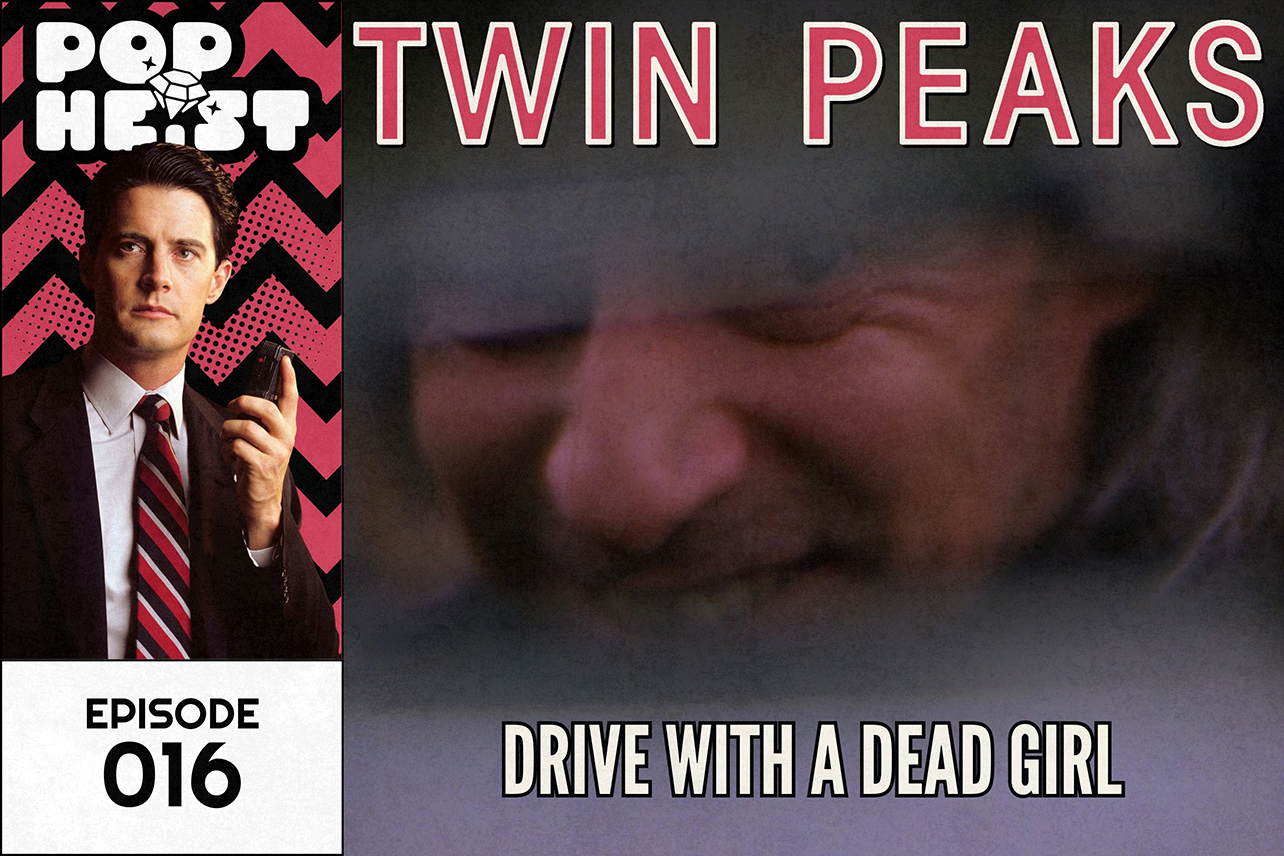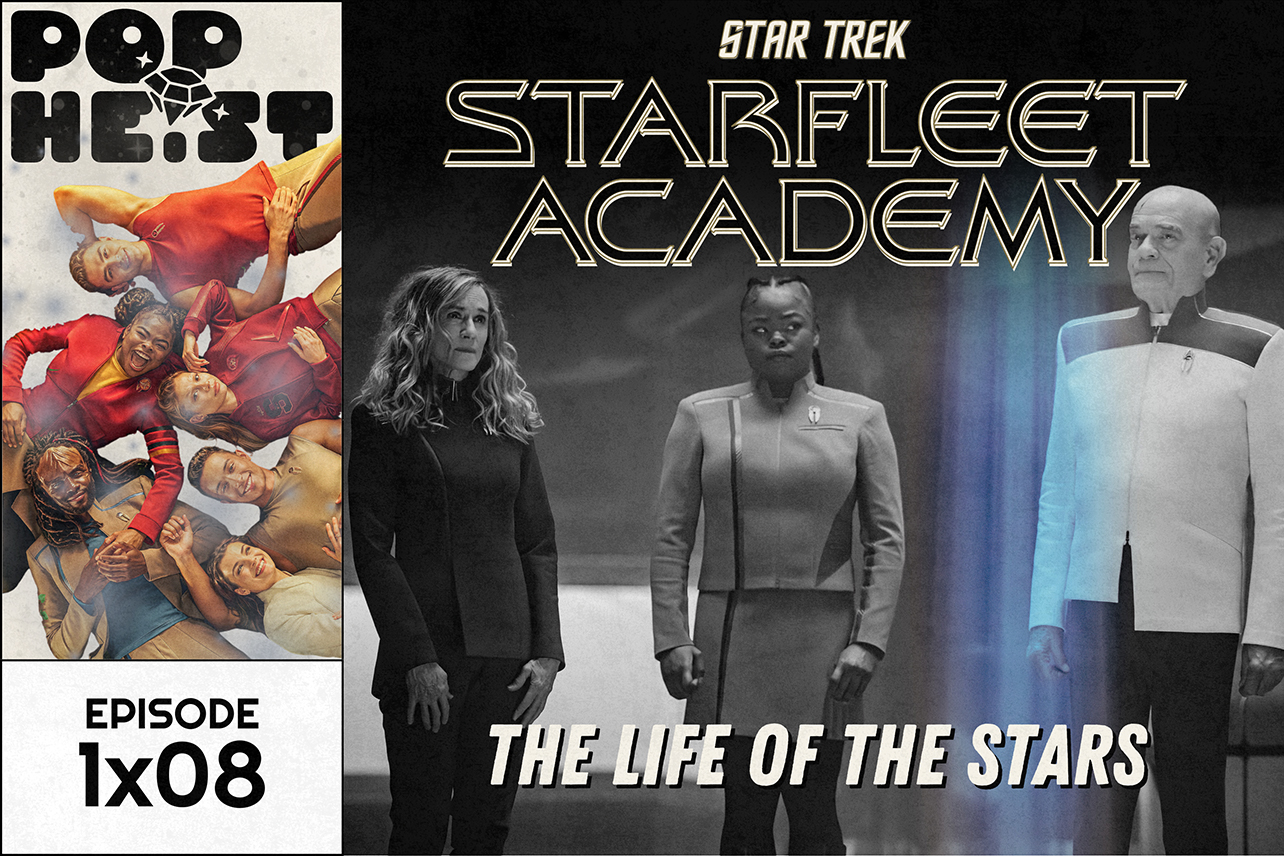As usual, Sundance Film Festival's annual program was too stuffed with must-sees to catch everything we wanted to see. Fortunately, we had enough time (and enough eyeballs) to see an overflowing handful of films worth ringing the town bell about — including a few daring indie gems unlike any of the better-funded and more polished titles buzzing out of Park City. Enjoy Pop Heist's favorite picks from the 2025 edition of the fest!
André Is an Idiot
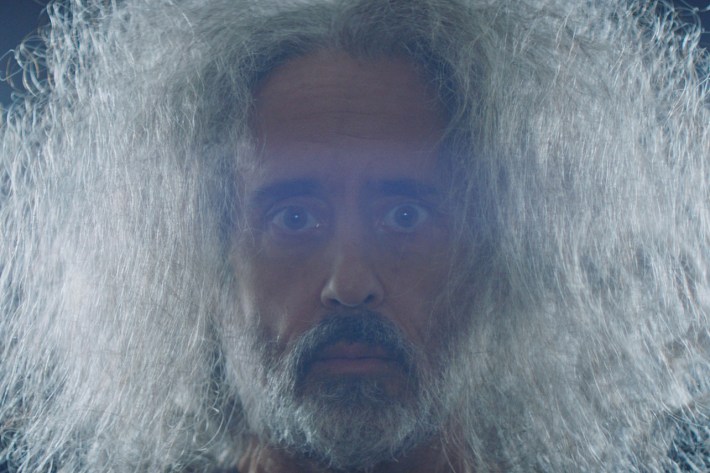
(Directed by Tony Benna)
It's not the done thing to speak ill of the dead. Those doomed to die, though, are fair game, especially men who could've pushed off their mortality a decade or so by seeing a doctor about that most customary 45th birthday gift: a colonoscopy. André Ricciardi, eccentric genius, declines that present, leading to his stage 4 colon cancer diagnosis at 50. In an early scene in André is an Idiot, Tony Benna's madcap and charming documentary about how André chooses to live while facing his death, André relays his mother's reaction to the bad news: "What a fucking idiot." He doesn't disagree.
Against the expectations of its brief, André is an Idiot is hilarious, anarchic, and fundamentally distinct from documentarian orthodoxy. Were André alive today, Benna's portrait of his character would catapult him to one tier of celebrity status or another. Sadly, he died in 2023, and here's where the movie mines substance: in challenging viewers to consider not what it means to live well, but die well. André is an Idiot urges those uncomfortable conversations — and middle-aged guys to get their butts checked.
Dead Lover
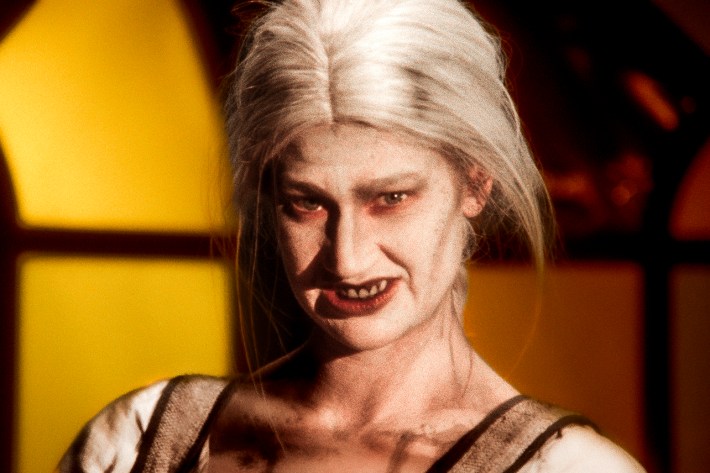
(Directed by Grace Glowicki; written by Grace Glowicki & Ben Petrie; starring Grace Glowicki, Ben Petrie, Leah Doz, & Lowen Morrow)
Could Looney Tunes rank among the conscious references Grace Glowicki had in mind for her new movie, Dead Lover? In this macabre screwball romance, Glowicki channels Jean Rollin, Michele Soavi, and — the curveball — Bugs Bunny while playing a malodorous gravedigger. She's lovesick and lonely 'til the day she meets a rakish poet so enamored with her reeking figure that he instantly he falls for her. When he abruptly dies at sea, Gravedigger defies her profession and brings him back to life.
Her harebrained scheme begets a pants-on-head calamity of love and reanimation gone erotically awry. Glowicki's filmmaking, meanwhile, makes a dazzling argument for cinema's exuberant democracy; Dead Lover respirates in a "black box theater" environment, the product of shooting on a soundstage seemingly dressed in half of a HomeGoods' shelves, where a cast four deep — Glowicki, co-writer Ben Petrie, Leah Doz, and Lowen Morrow — rotates between playing grief-stricken lovers, catty gossipmongers, and salty-tongued sailors. The scruffy artifice is as essential to Dead Lover as the troupe's mad zeal. So here's to true love – however decomposed or demented.
OBEX

(Directed by Albert Birney; written by Albert Birney & Pete Ohs; starring Albert Birney, Callie Hernandez, & Frank Mosley)
Children of the 1980s raised on Super Nintendo and Sega Genesis may recall their parents admonishing them about "getting sucked into video games." Albert Birney's OBEX actualizes that anxiety against the backdrop of 1987 Baltimore. Birney plays Conor, an introvert making a living through ASCII art portraiture. It's cicada season, it's warm, and it's about time the gaming industry caught up with his technological sophistication. So when he hears of OBEX, the latest and greatest in digital diversions, Conor sends out for a copy immediately. Then his dog Sandy gets kidnapped into the game and Conor follows her into the aether to save her.
Or does he? OBEX hangs out at the confluence where what's real and what's a part of the game splash together. At the same time, Birney's direction evokes the fidelity of the era's tech paranoia, enhanced with odes to A Nightmare on Elm Street and atmosphere derived from the works of Guy Maddin and Clive Barker. The movie is a stark, surrealist fever dream, fantastical and sunny at moments, terrifying at others, no more so than when Conor is confronted with his accountability for his circumstances. "Maybe someday, we'll all be living in computers," he muses in an early scene. Such is his reward.
The Virgin of the Quarry Lake

(Directed by Laura Casabé; written by Benjamin Naishtat; starring Dolores Oliverio, Luisa Merelas, Fernanda Echevarría, Dady Brieva, Agustín Sosa, Isabel Bracamonte, & Candela Flores)
The early 2000s were hard times for Buenos Aires: years of economic strife between 1998 and 2002 precipitated the government's downfall at the end of 2001 in a deadly riot outside of the Presidential Palace. Laura Casabé invokes the period's violence in her new film, The Virgin of the Quarry Lake, by alluding to that political turmoil, backgrounding Argentina's unrest as fertile ground for its young protagonist's angst.
Natalia (Dolores Oliverio) has a crush on Diego (Agustín Sosa), who's infatuated with Silvia (Fernanda Echevarría), several years his senior. Silvia's worldlier than either of them, and naturally, Natalia is intensely jealous of the attention Diego pays Silvia. Can a teenager rooted in a topsoil of hormonal urges and national outrage spontaneously develop supernatural powers, or should mounting evidence of Natalia's magic be taken as coincidence? The Virgin of the Quarry Lake leaves it to its audience to decide, though Casabe's hypnagogic aesthetic, trembling with hazy foreboding in the subconscious space where desire departs reality, tilts toward the former.
Didn't Die
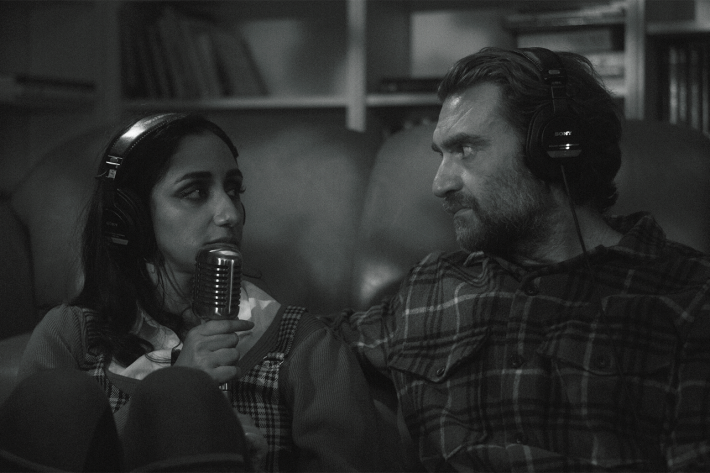
(Directed by Meera Menon; written by Meera Menon & Paul Gleason; starring Kiran Deol, George Basil, Samrat Chakrabarti, Katie McCuen, & Vishal Vijayakumar)
If you've ever woken up in a cold sweat, fearful that George Romero's influence on horror cinema and zombie narratives has waned, Meera Menon's Didn't Die is here for a reassuring hug. Think of the movie as a millennial update on Night of the Living Dead and Bruce McDonald's Pontypool. It's a homespun, personal production with an independent heart. Viewers whose patience is exhausted for stories of the podcast generation might find that brief unsavory. But Menon clarifies, without needlessly expositing, that Vinita (Kiran Deol) broadcasts through the zombie apocalypse to keep herself sane and not to hear herself talk, which puts her leagues ahead of the average sciolist with a condenser mic.


